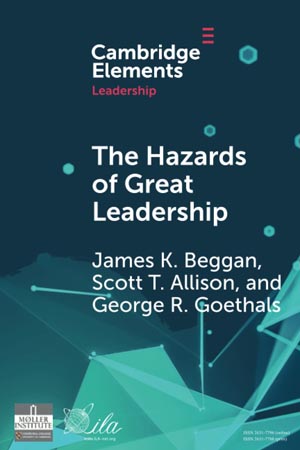Description: The value of great leaders seems to be an unquestioned assumption. The goal of this Element is to explore the counterintuitive idea that great leaders can pose a hazard to themselves and their followers. Great leadership, which accomplishes morally commendable and difficult objectives by leaders and followers, requires competence, morality, and charisma. A hazard is a condition or event that leads to human loss, such as injury, death, or economic misfortune. A leader can become a hazard through social psychological processes, which operate through the metaphor of Seven Deadly Sins, to create negative consequences. Great leaders can undermine their own success and accomplishments, as well as their followers. They can become a threat to the organization in which they are employed. Finally, great leaders can become a danger to the larger society. The damage great leaders can create can be reduced by applying the corresponding virtue.
About Cambridge Elements in Leadership
Series Editor
Ronald E. Riggio, Claremont McKenna College
Susan E. Murphy, University of Edinburgh
Founding Editor
Georgia Sorenson, University of Cambridge
The Cambridge Elements in Leadership series features “cutting-edge” topics in leadership that are multi- and inter-disciplinary, and will have broad appeal for leadership courses in a variety of programs. In addition to the scholarly audience, Elements also appeals to professionals involved in leadership development and training. Cambridge Elements in Leadership is published by Cambridge University Press in partnership with the International Leadership Association (ILA) and the Møller Institute, Churchill College, at Cambridge.





